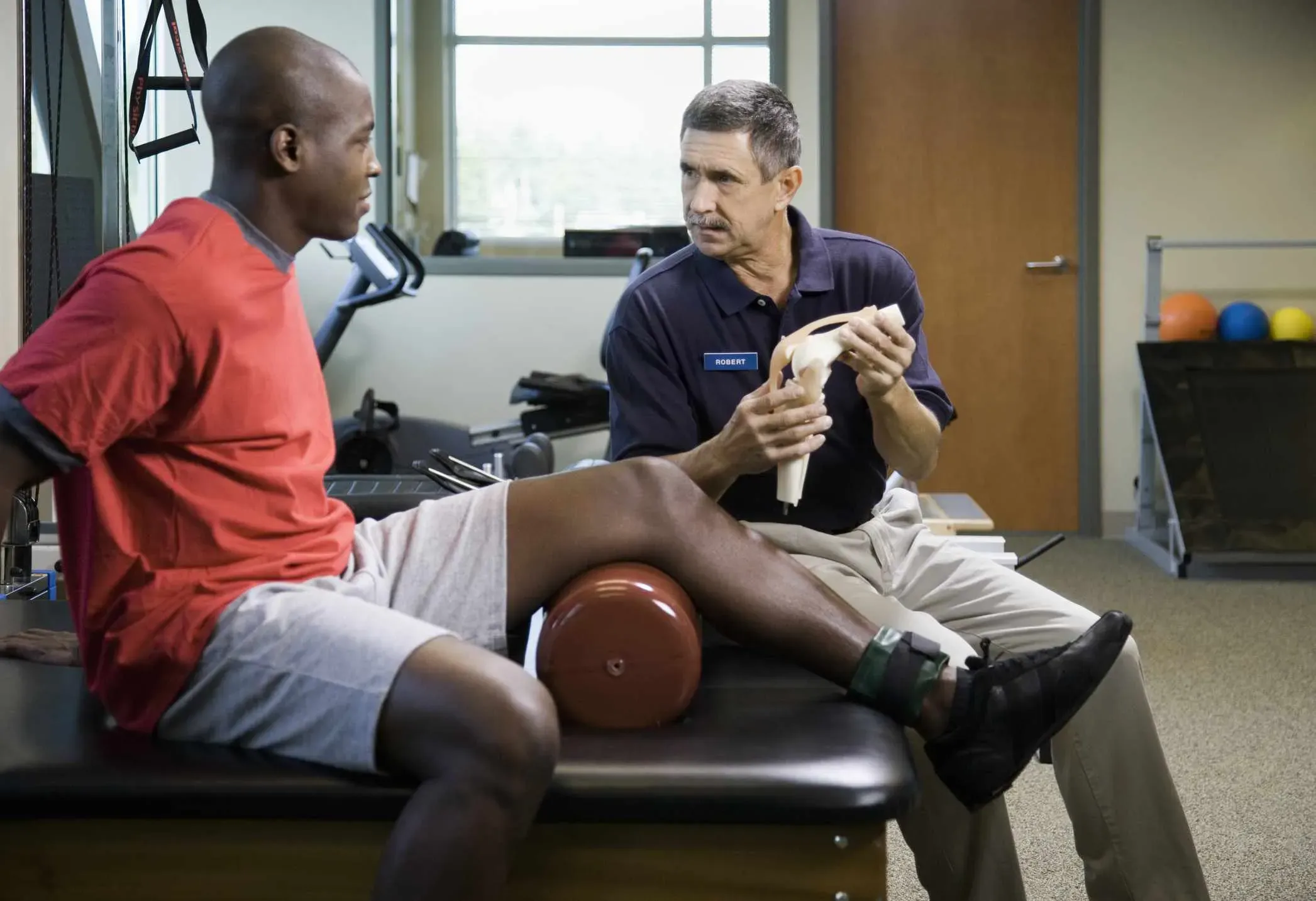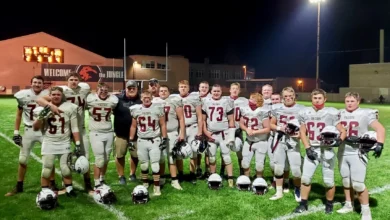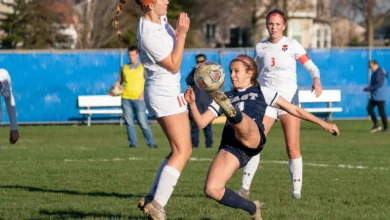Sports Medicine Career: Carson Moore’s Inspiring Journey

A promising future awaits those pursuing a sports medicine career, combining passion for athletics with healthcare expertise. As society increasingly values the importance of physical fitness and injury prevention, the demand for professionals skilled in sports medicine is on the rise. This dynamic field encompasses various roles, from athletic trainers to rehabilitation specialists, all crucial for supporting athletes and active individuals. Carson Moore’s journey exemplifies the transition from traditional career paths, as he dives into sports medicine education through hands-on experience and academic achievements. With his enthusiasm, internships, and community involvement, Moore is not just preparing for a successful future but is also inspiring others to explore their potential in this rewarding profession.
The realm of sports health is expanding, offering a diverse array of career opportunities for those passionate about athletics and wellness. Individuals drawn to roles such as athletic training, physical therapy, or sports rehabilitation can find exciting prospects within this industry. Carson Moore’s story illustrates a transformative career shift fueled by his newfound interest in sports-related health practices. As a volunteer and student, he navigates the world of youth athletics while gaining invaluable experience in the field. Embracing a path that merges sports and medicine, aspiring professionals can make significant impacts on both individual lives and the broader community.
From Engineering to Sports Medicine: A Transformative Journey
Carson Moore’s shift from engineering to sports medicine reflects a remarkable change of plans that many students undergo during their academic journey. While engineering appealed to his analytical skills, his experience at the Washington County Career Center opened his eyes to the dynamic field of sports medicine. This area not only encompasses the science of physical health but also involves ensuring athletes are safe and fit to perform at their best. Moore’s decision serves as a reminder of the importance of exploration in shaping one’s career path, especially in fields as diverse as sports medicine.
The allure of sports medicine lies in its combination of science, physical fitness, and the opportunity to work closely with athletes. For Moore, pursuing a career in this field has become more than just an academic choice; it is a passion that has blossomed through hands-on experiences and educational programs. Engaging in practical learning, like working with athletic trainers and help coordinate sporting events, allows students to apply theoretical knowledge to real-world situations, ultimately enriching their understanding of sports medicine.
Youth Sports Volunteerism: Building Skills and Experience
Carson Moore’s role as a youth baseball volunteer intertwines with his aspirations in sports medicine, providing him with invaluable experience. Volunteering in youth sports not only helps develop essential skills in teamwork and leadership but also fosters a deep understanding of athletic health and safety. By assisting with various teams, Moore gains insight into the physical demands placed on young athletes and the importance of maintaining their health, which is a core component of his future studies in sports medicine.
In addition to gaining practical experience, volunteering in youth sports allows Moore to contribute positively to his community while nurturing his love for the game. This involvement sets the foundation for a career that could later involve promoting health and well-being in sports medicine. As he mentors younger athletes, he not only enhances his own knowledge but also inspires the next generation about the importance of health in sports, embodying the spirit of volunteerism.
Sports Medicine Education: Preparing for a Successful Career
A quality sports medicine education is critical in preparing students like Carson Moore for successful careers in this field. Moore’s enrollment in a specialized sports medicine and exercise science program at the Washington County Career Center equips him with both theoretical knowledge and practical skills. Through hands-on classes and rigorous training, he has obtained certifications in essential life-saving techniques such as cardiopulmonary resuscitation and first aid. This foundational education is essential for anyone looking to thrive in various roles within sports medicine.
Furthermore, the integration of College Credit Plus programs allows Moore to earn both high school and college credits in relevant subjects that will bolster his knowledge in sports medicine. Subjects such as exercise science, personal safety, and nutrition directly relate to his career aspirations. By engaging in this advanced education track, students like Moore not only get a jumpstart on their collegiate journey but also emerge well-prepared to navigate the complexities of sports medicine as they transition into higher education.
The Impact of Internships on Career Development in Sports Medicine
Internships play a crucial role in shaping a successful career in sports medicine. Carson Moore’s internship experience at Belpre High School’s athletic department has provided him with a practical understanding of the daily operations involved in maintaining athlete health and safety. Internships allow students to apply their classroom knowledge in real-world settings, ensuring they develop essential skills necessary for their future careers. This hands-on experience also helps build professional networks that are vital in fields like sports medicine, where relationships can lead to job opportunities.
Moreover, interning under experienced professionals, such as athletic trainers and physical education teachers, grants Moore insights into the workings of sports medicine that are often not taught in textbooks. His proactive approach and willingness to learn exemplify the importance of seizing opportunities to enhance one’s understanding of the field. As he collaborates with professionals, he develops not only technical skills but also the interpersonal skills necessary to effectively communicate with athletes and healthcare teams.
Transitioning to a Sports Medicine Career: Lessons Learned
Transitioning to a sports medicine career from another field, as Carson Moore has done, comes with a unique set of challenges and lessons learned along the way. His initial focus on engineering laid a solid foundation for critical thinking and problem-solving skills, which are invaluable in sports medicine. However, discovering a passion for health and fitness opened the door to a fulfilling career that aligns with his interests. This transition highlights the importance of being adaptable and open to new opportunities that can lead to successful career changes.
Through his journey, Moore emphasizes the significance of exploration and the willingness to pivot in one’s educational pursuits. Understanding how various experiences contribute to personal and professional growth is crucial in developing a successful career in sports medicine. By remaining open-minded and willing to embrace new paths, students can unlock their true potential and find fulfilling careers that resonate with their passions.
Building a Career: The Importance of Certifications in Sports Medicine
For aspiring professionals like Carson Moore, acquiring industry-recognized certifications is critical in establishing a robust career in sports medicine. By obtaining certifications in automated external defibrillator use, first aid, and physical therapy, Moore is positioning himself as a knowledgeable candidate ready to excel in this competitive field. These qualifications not only enhance one’s resume but also instill confidence in the ability to respond effectively in emergencies, which can make a significant difference in an athletic setting.
Moreover, pursuing certifications demonstrates a commitment to ongoing professional development, a valued trait in any healthcare role. In sports medicine, staying updated with the latest practices and technologies is essential for optimal athlete care. Moore’s proactive approach to gaining relevant certifications showcases his dedication to his future career, making him appealing to future employers who seek skilled, well-trained professionals.
Exploring Orthopedic Equipment Sales: A Career Path in Sports Medicine
As Carson Moore looks ahead to his post-college career, the prospect of entering orthopedic equipment sales resonates with his background in sports medicine. Orthopedic sales professionals play a crucial role in supplying healthcare facilities with the necessary tools to treat sports-related injuries. By combining his interest in sales with his knowledge of sports medicine, Moore aims to create a career that bridges his passions and professional goals.
Engaging with family members who work in orthopedic sales provides Moore with insights into the industry, helping him understand the skills and qualifications needed to succeed. This firsthand knowledge underscores the importance of networking in any field, especially within sports medicine, where knowing the right people can lead to valuable opportunities. Moore’s ambition to thrive in orthopedic sales reflects the diverse career paths available within the realm of sports medicine, making it an exciting field for future professionals.
The Role of Student Ambassadors in Promoting Sports Medicine
Carson Moore’s role as a student ambassador highlights the importance of peer leadership in promoting sports medicine education and career opportunities. Ambassadors play a significant part in orienting prospective students about various programs, including sports medicine, thereby shaping their academic choices. By sharing his experience and knowledge, Moore actively participates in fostering a supportive environment for students exploring career options in health-related fields.
Additionally, as student ambassadors engage with younger peers, they not only promote their programs but also instill enthusiasm about pursuing careers in sports medicine. These interactions can inspire students to consider roles in athletic training, physical therapy, or sports medicine education, potentially leading to greater interest in these fields. Moore’s commitment to serving as a mentor affirms the impact of student leadership in creating pathways to successful careers in sports medicine.
Excel in Sports Medicine: The Importance of Academic Excellence
Academic excellence plays a crucial role in paving the way for a successful career in sports medicine. Carson Moore’s achievements, reflected in his principal list and honor roll status, underscore the importance of diligence and performance in school. Excelling academically not only establishes a strong foundation for further education but also attracts scholarship opportunities, which can significantly alleviate the financial burden of college. For students considering a sports medicine career, prioritizing academics is essential for achieving their long-term goals.
Furthermore, maintaining strong grades in relevant subjects such as biology, health sciences, and physical education enhances students’ understanding of the complexities within sports medicine. This knowledge is essential for those pursuing specialized degrees in the field. Moore’s proactive approach to academics illustrates how dedication and hard work are intrinsic to thriving in sports medicine, paving the way for future success and opportunities.
Frequently Asked Questions
What are the educational requirements for a sports medicine career?
To pursue a sports medicine career, individuals typically need a bachelor’s degree in exercise science, kinesiology, or a related field. Many may also opt for further education such as a master’s degree or certification in sports medicine, which enhances job prospects and knowledge in the field.
How can I change my career to sports medicine?
Changing to a sports medicine career often begins with enrolling in relevant educational programs or courses. Volunteering in youth sports or internships at athletic departments can provide valuable experience and insight into the field, helping to solidify your career transition.
What types of jobs are available in the sports medicine field?
Careers in sports medicine include roles such as athletic trainers, physical therapists, exercise physiologists, and sports nutritionists. Additionally, there are opportunities in orthopedic equipment sales, where individuals can combine their medical knowledge with business skills.
What are the benefits of a sports medicine career?
A career in sports medicine offers numerous benefits, including opportunities to work with athletes, make a positive impact on people’s health, and the ability to stay active in a dynamic environment. It also provides pathways for specialization and advancement.
How important is volunteering in youth sports for a sports medicine career?
Volunteering in youth sports is extremely beneficial for a sports medicine career. It allows individuals to gain hands-on experience, understand injury prevention and management, and develop relationships within the sports community, enhancing both skills and resume.
What credentials can enhance a sports medicine career?
Obtaining credentials such as CPR, first aid, and specialized certifications in sports medicine can greatly enhance career prospects. These recognized qualifications demonstrate competencies that are critical in emergency situations and in supporting athletes.
Is a scholarship an important factor in pursuing a sports medicine education?
Yes, a scholarship can significantly ease the financial burden of pursuing sports medicine education. It allows students to focus on their studies and gain necessary credentials without the added stress of tuition fees, while also providing a chance to get involved in athletics.
What role does networking play in a sports medicine career?
Networking is crucial in a sports medicine career as it helps individuals connect with professionals in the field, discover job opportunities, and gain insights into trends and advancements. Attending workshops, conferences, and being part of organizations like SkillsUSA can enhance networking opportunities.
What skills are essential for success in a sports medicine career?
Essential skills for success in a sports medicine career include strong communication, teamwork, problem-solving abilities, and a solid understanding of anatomy and physiology. Practical skills gained through internships and hands-on experience are also crucial.
What are the first steps to study sports medicine after high school?
After high school, the first steps to study sports medicine include researching colleges with strong exercise science programs, applying for relevant courses, and seeking internships or volunteer opportunities in the sports community to gain practical experience.
| Key Point | Details |
|---|---|
| Background | Carson Moore initially aspired to become an engineer. |
| Inspiration | A visit to the Washington County Career Center sparked his interest in sports medicine. |
| Current Studies | Moore is a senior in the sports medicine and exercise science program. |
| Internship Experiences | He interns in the athletic department at Belpre High School, assisting with various tasks. |
| Extracurricular Activities | Moore volunteers in youth baseball and is captain of basketball, baseball, and golf teams. |
| Certifications | He earned multiple certifications including CPR, first aid, and physical therapy technician. |
| College Plans | He has been awarded a golf scholarship to Marietta College. |
| Future Aspirations | Moore aims to enter orthopedic equipment sales, influenced by family members. |
Summary
A career in sports medicine offers a dynamic and exciting path for individuals like Carson Moore, who discovered their passion through hands-on experiences and education. As highlighted in Moore’s journey, the transition from engineering to sports medicine not only showcases the variety of opportunities within the field but also emphasizes the importance of practical training and certifications. Moreover, with scholarships and early college credits, aspiring sports medicine professionals can set themselves up for successful futures and fulfilling careers.




